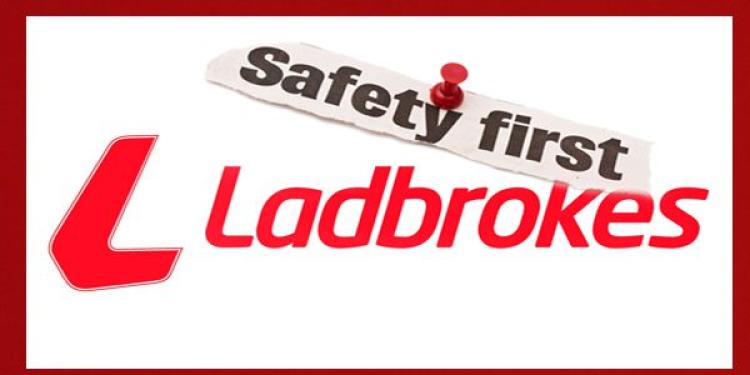You Can Teach an Old Dog New Tricks: The Folks at Ladbrokes
Posted: March 28, 2014
Updated: October 4, 2017

Ladbrokes cuts major deal with Playtech in the hope of saving itself after years of clinging to an outdated business model.
Operating a chain of betting shops these days is like using a type writer: it has nostalgia appeal, but from a practical standpoint it just doesn’t make any sense. Most of the money to be made in the sportsbook game is now made online, and the successful bookmakers have taken this lesson to heart. Upstart online sportsbooks in Britain like Bet365 and Paddy Power have risen to prominence using business models biased towards online betting. Even the old High Street mainstay William Hill launched an internet site back in 1999 and the online sector now makes up 30 percent of its revenue stream. But there is one big name in bookmaking that has fallen behind on this irreversible trend: Ladbrokes.
It’s not the Victorian era anymore
They remain heavily invested in High Street betting shops, operating roughly 2,400 in the UK and Ireland in addition to a smattering of shops in Belgium and Italy. While this has been their calling card since the company was founded in 1886, it is becoming increasingly difficult for these shops to remain profitable.
Due to the convenience, ever more people are choosing to bet online or via mobile device than go in person to a betting shop. That is a simple fact that can’t be ignored. And the British authorities haven’t made things any easier for the High Street.
• Ladbrokes reported a 33 percent drop in profits from Q1 2013 to Q1 2014, due largely to its failure to tap the online betting and gambling market
• Britain’s new 25 percent tax on fixed-odds betting terminals will further cut into the company’s profits
• In a desperate effort to increase its online revenue stream the company signed a major deal to offer Playtech’s 200+ casino games on its website
Last week Chancellor of the Exchequer George Osborne announced that the government was bowing to pressure from anti-gambling groups and raising the sales tax on fixed-odds betting terminals (FOBTs) from 20 percent to 25 percent. FOBTs now account for over half of betting shop revenue nationwide, so a downturn in that revenue stream could force many establishments to close. Industry spokesman complained that the change to British gambling laws would cost the industry GBP 79 million annually.
Bookmakers took a tumble on the London Stock Exchange following the announcement, with Ladbrokes falling 15.1 percent from peak to trough and competitor William Hill falling 9.7 percent. Why did Ladbrokes take a bigger hit? According to financial analysts at Bloomberg, the firm is more heavily invested in betting shops than its more trend-savvy counterpart, so the tax hit will cut more deeply into its profits. This comes after the company announced its year-on-year profits fell by 33 percent from the first quarter of 2013 to the first quarter of 2014.
Failure to launch
It’s not that Ladbrokes executives didn’t notice when the betting world started to move online. The company’s first betting site launched in 2000, just one year after competitor William Hill. It is just that they never made the transition in an effective manner. Ladbrokes betting and casino site currently has 750,000 active members worldwide in addition to 145,000 on its online poker site in Britain. These numbers look impressive on the surface, but they’ve struggled year in and year out to turn a significant profit from online operations. As mentioned in the previous section, 2013 was an especially bad year for the bottom line. And its usership pales in comparison to the 2.4 million people who used William Hill’s online services in 2013.
Ladbrokes executives have woken up the fact that future betting revenue will be driven by the online sector, and that its current online offering is simply not up to par. So last year it made a bold move, dumping longtime gaming supplier Microgaming and signing a five-year deal with Playtech.
Recent moves to prime the online profile
The company’s recent moves seem somewhat confused. Bloomberg reported that it opened 122 new shops in 2013, seemingly defying the writing on the wall in that regard. On the other hand, it has made moves to drastically improve its online offering. Last year it struck a landmark deal with industry-leading developer Playtech to offer its entire portfolio of over 200 casino games on Ladbrokes casino site. The deal is not a joint venture; Ladbrokes will pay royalties for the right to host Playtech’s games.
The move is a bold one, but a shake-up was necessary to revive Ladbrokes’ stale online offering. Playtech is considered the dominant player in the European iGaming market, and made a lot of money for William Hill in a joint venture between the two companies. Bringing more than 200 games to Ladbrokes table should provide the shot in the arm that the flailing bookmaker needs.












